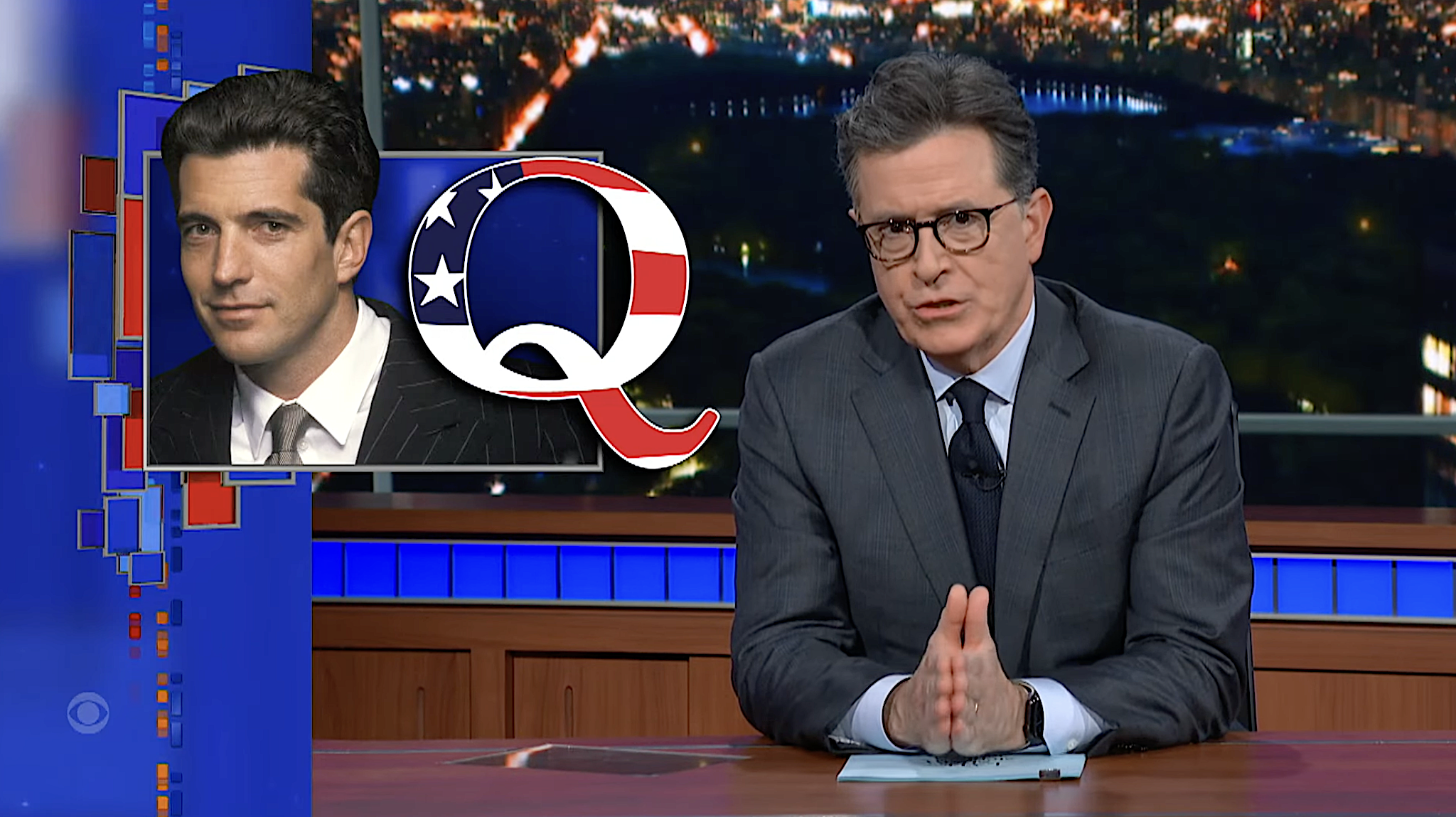Sound of Freedom brings the culture wars to the big screen
A box office hit that critics say is 'QAnon-adjacent'


A free daily email with the biggest news stories of the day – and the best features from TheWeek.com
You are now subscribed
Your newsletter sign-up was successful
Is QAnon winning at the box office? Variety reported that's what some critics are saying about the success of Sound of Freedom, a faith-based thriller about child trafficking, after it took in $40 million during its first six days of release. The movie's defenders say that its success proves that Hollywood all too often overlooks the potential of films that appeal to religious conservatives. That accomplishment "reflects a demand by an underserved audience who are hungry for entertainment that reflects their values and beliefs," said one analyst.

"However one chooses to slice it, Sound of Freedom has over-delivered on expectations in dollars and cents," Charles Bramesco wrote at The Guardian. The movie contains no explicit mention of QAnon — but it does seem to be "QAnon-adjacent." For one, it stars Jim Caviezel — best known for playing Jesus in The Passion of the Christ — who has a habit of promoting conspiracy theories about traffickers who harvest drugs from the glands of children. The themes are also strongly reminiscent of the Q conspiracy theory. Those unfamiliar with QAnon "may not pick up on the red-yarn-and-corkboard subtext" of the film, but for true believers, the movie is "a clarion call that leads right to the multiplex."
Those claims have seen pushback from conservative media outlets. Operation Underground Railroad founder Tim Ballard, whose organization inspired the film, went on Fox News to deny the QAnon associations. "Every show I've seen, they just like to throw the word out, QAnon," he said. "They make zero connection to the actual story."
The Week
Escape your echo chamber. Get the facts behind the news, plus analysis from multiple perspectives.

Sign up for The Week's Free Newsletters
From our morning news briefing to a weekly Good News Newsletter, get the best of The Week delivered directly to your inbox.
From our morning news briefing to a weekly Good News Newsletter, get the best of The Week delivered directly to your inbox.
'Moral panic' or realistic horrors?
On the surface the movie is a straightforward thriller, Sam Adams wrote at Slate. But it arrived in theaters in a "cloud of innuendo" by supporters "about who doesn't want this story to be told." And it is difficult to ignore Caviezel's press tour, in which he has discussed an alleged "black market where a barrel of children's body parts goes for a thousand times the price of oil." For all that, the movie is a "little nondescript," Adams wrote. "But that only makes it a better vehicle for other people's messages."
"It's not 'paranoid' or 'QAnon adjacent' to bring much-needed attention to horrors that are all too real," Madeline Kearns wrote at National Review. If the film fuels a "moral panic" about sex trafficking the result will be "at worst, wasted energy and a disproportionate use of resources." But it could turn out that Americans are underestimating the problem. The movie performs a valuable service by reminding us "as long as children are being abused … the rest of us ought to care."
"The exploitation of children is a real problem that no one (besides the exploiters) want," Rich Juzwiak wrote at Jezebel. What's more, Sound of Freedom is "well-acted, it looks expensive, and it moves at a rapid clip." But it's difficult to untangle the film from its right-wing associations, including endorsements from Elon Musk and Ivanka Trump. So of course the movie is designed to entice audiences. "I can't say I wasn't entertained in some way," Juzwiak wrote, and added: "That's how propaganda works."
Changing the movie business
The Wall Street Journal reported that the studio behind Sound of Freedom, Angel Studios, is looking to follow up on its success. While big studios increasingly rely on "big-budget crowd pleasers," others see "room to operate for releases targeting niche or underserved audiences." Another faith-friendly film — Jesus Revolution — grossed $52 million at the box office earlier this year. Sound of Freedom has an unusual business model: The studio crowdfunded the release, with 7,000 backers contributing as little as $10 apiece to ensure the movie appeared in theaters. "We realized that this black box that was the theatrical experience is now open to us," said studio president Jordan Harmon.
A free daily email with the biggest news stories of the day – and the best features from TheWeek.com
More than any lesson about sex trafficking, that business lesson might be the movie's most significant legacy. Expensive movies like the new Indiana Jones flick "must reach a blockbuster status to see any profit margins," Dhruv Sharma noted at Screen Rant. But Sound of Freedom was made for just $14.5 million. That means it "can break even without raking in as much revenue as bigger-budget movies."
Joel Mathis is a writer with 30 years of newspaper and online journalism experience. His work also regularly appears in National Geographic and The Kansas City Star. His awards include best online commentary at the Online News Association and (twice) at the City and Regional Magazine Association.
-
 Political cartoons for February 15
Political cartoons for February 15Cartoons Sunday's political cartoons include political ventriloquism, Europe in the middle, and more
-
 The broken water companies failing England and Wales
The broken water companies failing England and WalesExplainer With rising bills, deteriorating river health and a lack of investment, regulators face an uphill battle to stabilise the industry
-
 A thrilling foodie city in northern Japan
A thrilling foodie city in northern JapanThe Week Recommends The food scene here is ‘unspoilt’ and ‘fun’
-
 Mysterious Georgia granite monument bombed, destroyed after GOP candidate called it 'Satanic'
Mysterious Georgia granite monument bombed, destroyed after GOP candidate called it 'Satanic'Speed Read
-
 Jon Stewart and the BBC's Gabriel Gatehouse try to explain QAnon's irrational allure
Jon Stewart and the BBC's Gabriel Gatehouse try to explain QAnon's irrational allureSpeed Read
-
 QAnon has now dragged the Rolling Stones into its Trump-JFK Jr. fantasy, and Stephen Colbert has questions
QAnon has now dragged the Rolling Stones into its Trump-JFK Jr. fantasy, and Stephen Colbert has questionsSpeed Read
-
 Generation Q
Generation Qfeature An elaborate conspiracy theory from the darkest corners of the internet is spreading to the mainstream. Why do people believe in QAnon?
